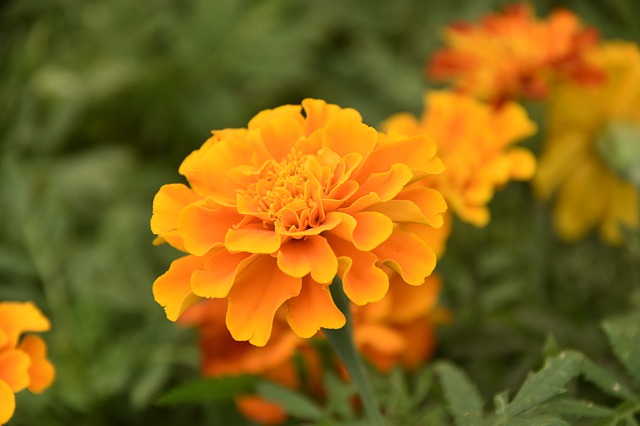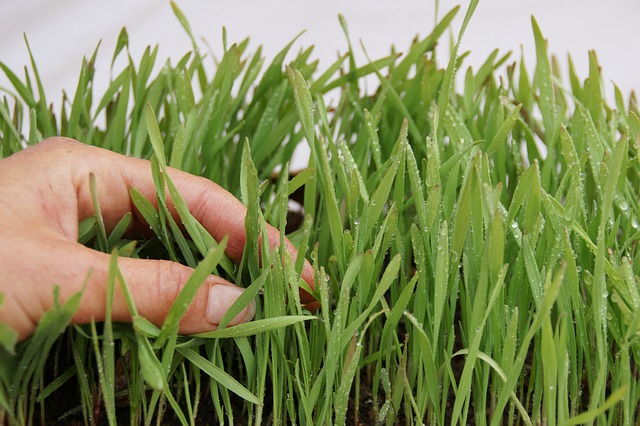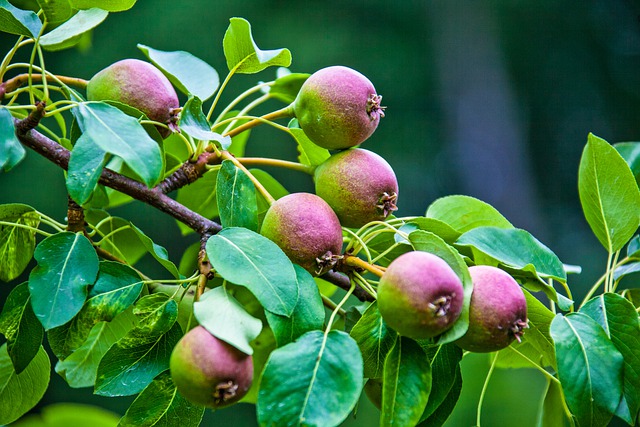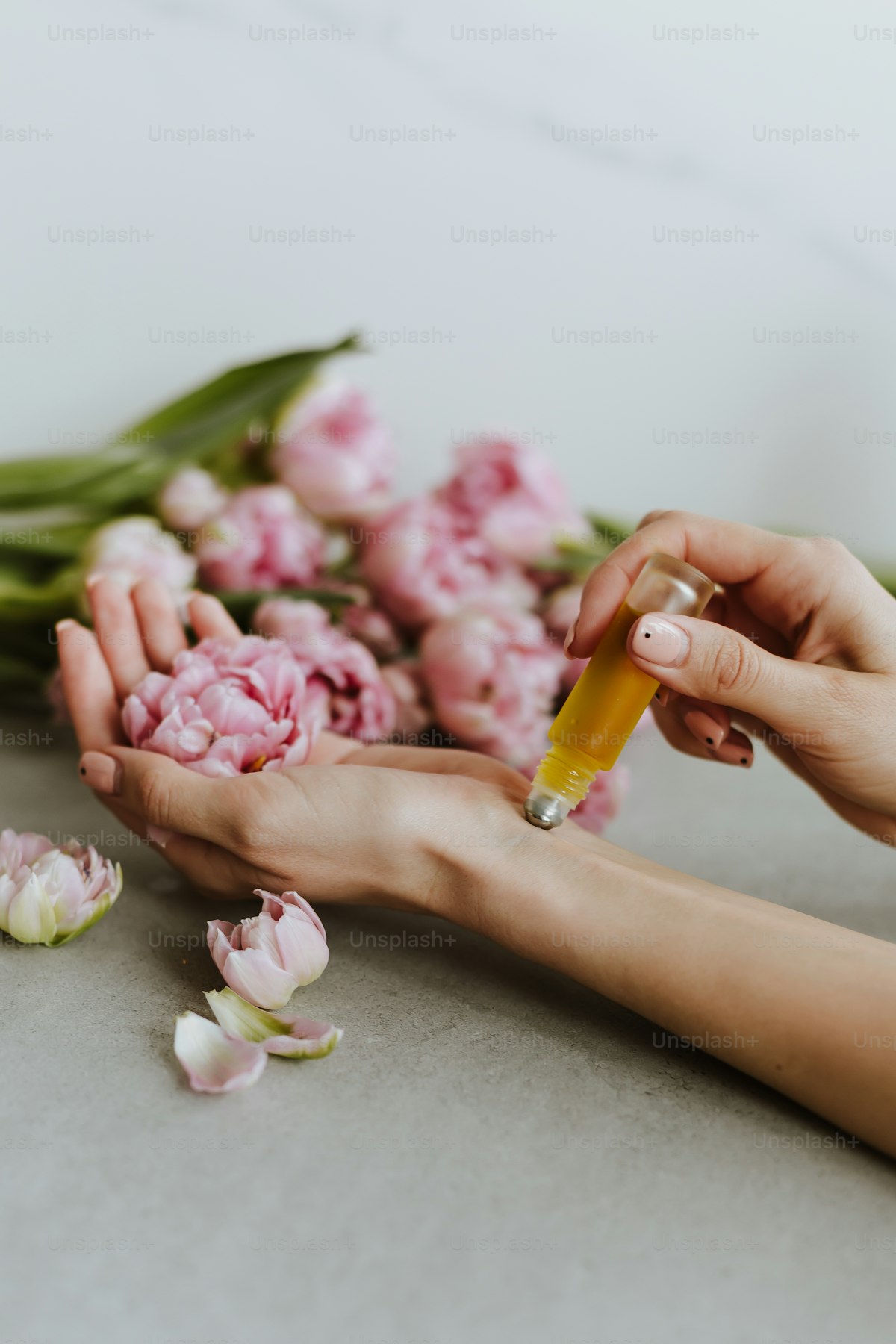
Lots of natural ways exist for growing a bright and healthy organic garden. First, you must learn the methods, and then choose which ones you would like to implement.
Ward off certain diseases that plague plants with the use of aspirin. Your plants can benefit from a solution you can make by dissolving one and one-half aspirins into a couple of gallons of water. Spray your plants with the water if they have a disease. Apply at three week intervals.
Your children will enjoy being involved with your organic gardening endeavors. They will enjoy learning about nature and bonding with you.
If you are planning to grow plants within the house, the temperature should be maintained between 65 and 75 degrees within the daylight hours. In order to encourage proper growth, they will need that warmth. If your thermostat is normally kept lower in winter, you can use a heat lamp to keep your plants warm enough.
The ambient temperate of a room with live plants should be kept between sixty-five and seventy-five degrees throughout the day. The temperature needs to remain steady and warm so the plants can grow. If you don’t like keeping your home that temperature in the winter, you may wish to consider getting a heat lamp, instead, to keep your organic plants the correct temperature.
You will garden more efficiently if you keep your tools close by. Carry a large bucket with you or wear pants with a lot of pockets. A gardener’s tool belt will allow you to keep your gardening gloves and other tools close by while you are working in your garden.
If you want to start a small organic garden indoors, evaluate the amount of natural light that is present. If your apartment or home does not receive a huge amount of sunlight, you might want to grow plants that adapt to medium and low light environments instead. If the type of plant does not help, you can always use lights to help.
Take your seedlings and saplings to a cooler spot once they are established. You can begin to move them further from the heat source as they become seedlings. Take off any plastic that is on the containers to keep away from warmth and moisture. You should know when the right time is if you are keeping an eye on the seeds.
It’s simple to lay a new perennial bed. Using a garden spade, dig underneath the turf and flip it. Then, create a layer of wood chips at least three inches deep over the area you just flipped. Let the area have about two weeks, then dig it and plan the new perennials.
Use about two to three inches of organic material as mulch in all of your flower beds. This is a simple method of discouraging weeds, retaining moisture, and adding excellent nutrients into the garden. Mulch will also improve the general appearance of your flower beds.
Keep your tools handy to work more efficiently. Put them into a basket you carry with you, or use an apron with many pockets and hanging loops. Keep common tools such as your gloves or your pruning shears within reach so that you can quickly and easily maintain your garden whenever you need to.
Avoid allowing chores in your organic garden stack up. Even doing just a few small things each day can keep chores from piling up and eventually becoming unmanageable. This will save you a lot of time in the long run. Even if you’re just taking the dog for a walk, bend down and pick a few weeds.
In your flower beds and garden, utilize a few inches of organic mulch. Mulching helps to hold moisture in the soil, enhance the soil quality, and slow down the growth of weeds. As an added bonus, a nice mulch can help make your garden look more finished.
When it’s harvest time, you should utilize a basket that you put laundry in to carry your veggies. A laundry basket will act as a strainer for your produce. The basket won’t be affected by the water and it will drain right off as though it were poured into a large sieve.
Coffee Grounds
Your compost pile should contain green plants and dried ones in equal amounts. Examples of green plant material are spent flowers, fruit and vegetable waste, grass clippings, weeds, and leaves. For the dry end of the spectrum, think of things like paper and cardboard, sawdust, hay, etc. Avoid ashes, meat, charcoal and diseased plants in your compost.
Coffee grounds can benefit many types of soil. Coffee has a lot of essential nutrients that plants need. Nitrogen is a nutrient that will help your plants grow taller and bloom faster, so use those coffee grounds, extra compost, or diluted urea to make this happen.

If you are building a raised bed utilize stone, brick or wood that is untreated. If you choose wood, it needs to be naturally rot resistant and untreated. Several species of trees yield suitable wood. Locust, cypress, and cedar are among the more commonly used rot resitent woods. Treated wood can leach chemicals into any soil it rests against, so don’t use it in a garden with vegetables. If you must use treated wood, consider using a liner to keep chemicals out of the soil.
When it’s harvest time, you should utilize a basket that you put laundry in to carry your veggies. The laundry basket will function as a makeshift strainer for the fruits and vegetables. Rinse your produce while it lays in the basket; any excess water strains off through the laundry basket holes.
If you’re planning on selling crops to people and labeling them as organic, you will need to receive an organic gardening certification. This also does several things to boost your business. First, it is likely to increase your sales as it builds trust in more customers. Second, it shows customers who have been loyal that the quality produce you provide is top notch.
A rule of thumb followed by many planters is to bury the seeds in soil to a depth of around three times the diameter of the actual seed. However, it is important to understand that some seeds require sunlight and should never be covered. Among the seeds meeting this definition are ageratum and petunias. If you’re not sure if your seeds need sunlight, you can find out online or through the seeds’ package.
Adopting organic gardening methods may take more effort than traditional approaches, but the payoff is considerably worth it. Growing organic is healthier and just overall better for you. Make sure you try your best to grow organic as opposed to adding chemicals to your garden.
If you want to sell your crops as organic, you should look into obtaining a certification proving that you are an organic garden. That way, you will realize greater sales volume and demonstrate the value of your produce to potential and returning customers.
Avoid over-watering your plants. Excess water may hinder the plant’s roots from getting nutrition from the soil. Before watering your organic garden, check weather forecasts to determine if it is likely to rain later that day. If the weather forecast calls for rain, it’s probably wise to not water your plants that day.
Change how much you water your plants with the changing of the seasons. You should also adjust your watering habits if the temperature or amount of rainfall changes dramatically. The amount of water you need depends on when you are doing the watering, whether your water is high-quality and the grade of the soil in your garden. As an example, leaves should not be watered in humid, warm climates else leaf fungus could occur. Make sure that your root system is well-watered.
An excellent feature of organic vegetables is that they contain no pesticides. While this is good for your family’s health, you will want to be sure to check even more for bugs and other pests.
Excessive amounts of water makes it harder for plants to get the nutrients they need from the soil. You should always check the weather forecast, in advance, for chances of rainfall before you water the plants. If rain is predicted, you shouldn’t bother to water any outdoor plants for that day..
Find out more about botanical insecticides to get rid of the pest. All insecticides are strong, including botanical ones. One downside of botanical insecticides is that they decay quickly.
Rotate your garden at least once a year. Fungus and disease are more likely to affect plants if they stay in the same location for long periods of time, especially if they belong to the same family. These plant killing phenomena can lay dormant down in the dirt, waiting and willing to strike your next year’s plants. Change the design of your garden regularly to prevent diseases from spreading.
Mulch should be added to your flower bed and garden using at least 3 inches of material that is organic. This will retain moisture in the soil as well as provide nourishment. It also inhibits weed growth, resulting in a tidier presentation of your organic garden.
If you are interested in using organic gardening techniques to plant perennials, you will be pleased to know that it is very easy. Cut into your turf using a spade and then cover the exposed portion with lots of wood chips. Wait a few weeks and then plant your perennials into the brand new bed.
Use a soaker hose to water your garden. You can direct the water to the roots, and let it seep slowly. These use much less water than the sprinklers and are less time-consuming than hand-watering your plants.
Anyone can have a garden, but it takes knowledge to have a productive and healthy one. Put this advice to work for you.
Determine which plants you want to grow in advance when planning an organic garden. Many garden plants come in a wide range of varieties, and these varieties can often have quite different care requirements. For instance, if you are planning on planting roses in your garden, be sure to check that they will do well in your particular environment. So, be sure to choose the specific varieties that are most suited for your planting environment.
A number of people would like to learn more about natural latex pillow
wholesale mattress protector twin xl
mattress and box spring covers, but not everyone knows where they should look. You have found the information you require to get going, right here in this article. Use the information you’ve learned, and get busy.














